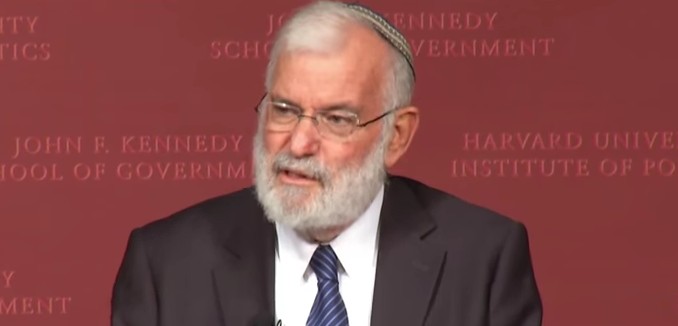The Joint Comprehensive Plan of Action (JCPOA) is a “bad agreement” that will leave Israel and the rest of the world dealing with its “dangerous” consequences, Israel’s former national security advisor, Gen. Yaacov Amidror, wrote in an analysis published Wednesday by the Begin and Sadat Center for Strategic Studies.
The agreement with Iran reached by the Western powers represents, ostensibly, a great achievement. If the Iranians abide by its terms, their ability to achieve nuclear weapons status will be set back by around fifteen years (although it could be claimed that part of the agreement is valid for only ten years). Furthermore, the strict inspection arrangements are meant to ensure that even if Iran does not observe the agreement, IAEA inspectors will be able to spot any violations, and there will be plenty of time (a year) to formulate a response.
However, this would be to ignore the central problem that arises from the agreement and from a series of inherent weaknesses in the accord. It is clear that the agreement was signed in order to delay the Iranian nuclear bomb program, not to end it. And thus, when the program rears its head again it will be a problem several times more serious and far harder to deal with. …
The main problem is with the substantial outcome of the agreement, which was well described by Iranian President Rouhani, as follows: Iran gets to keep its (military!) nuclear program, while sanctions against Iran are lifted. For the Iranians it was important, above all else, to gain international legitimacy for their nuclear program, and in this they have been successful.
More to the point, Amidror wrote that the consensus of experts is that Iran’s nuclear program is strictly military. However, instead of proceeding from this conclusion as a starting point and addressing the consequent need to dismantle Iran’s nuclear infrastructure, the American focus shifted instead to merely delaying the progress of Tehran’s nuclear program. With this shift in priorities, it became necessary for the United States to exclude Israel from the deliberations due to “significant differences of opinion.”
Amidror entertained three possible outcomes of the nuclear agreement. The first is that the nature of the Iranian regime changes in the next ten to fifteen years until Tehran no longer poses a threat to Israel or anyone else in the Middle East. The second is that Iran mostly abides by the agreement for one or two years until all sanctions are lifted, and then starts cheating at the margins, challenging the international community to take action. Under this scenario, Amidror argued that “it is almost certain that they will be able to develop their first nuclear device before the West can respond.” The final possibility is that Iran will abide by the terms of the deal for the full fifteen years, using the relaxed restriction on its centrifuge research to develop an industrial enrichment program, until it will be apparent that the “country’s leaders gave up on fulfilling the dream of a military nuclear program in their time, in order to allow it to be achieved easily and with no real opposition less than twenty years later.”
Amidror doesn’t give much stock to the possibility that Iran will change its nature and, in his conclusion, wrote:
It is impossible to claim, in light of all the shortcomings of the agreement as described above, that the agreement should be supported even if it is not perfect. This agreement will likely and necessarily lead to the use of force against Iran, at some stage or other, in order to halt its race toward nuclear weapons. This, however, will take place in far worse conditions than before the agreement, against a far- stronger Iran.
[Photo: Harvard University / YouTube ]




